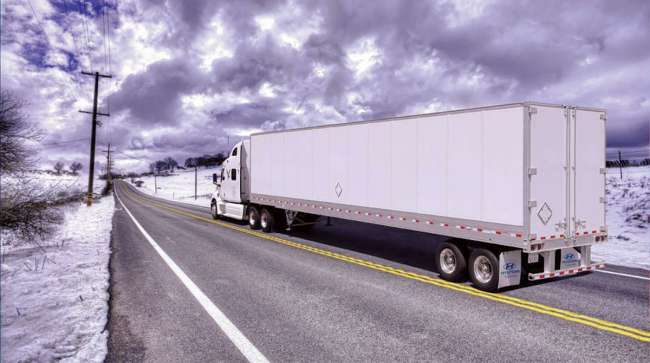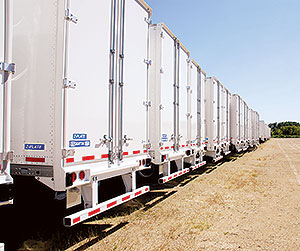Senior Reporter
March Trailer Orders Fall

U.S. trailer orders in March slipped to the lowest level in nearly two years, landing in the 15,000-units range, ACT Research reported.
Trailer makers and analysts said the decline was to be expected and should not be misinterpreted as a slump.
Orders hit 15,600, according to ACT, citing preliminary data.
According to ACT Research, Preliminary March net trailer orders were 15,600 units, down 35% from February and off 48% y/y. #Trailers #Transportation https://t.co/f3SCWaJPlD
— ACT Research (@actresearch) April 16, 2019
Frank Maly, director of commercial vehicle transportation analysis at ACT, described the market as in “a bit of a holding pattern.” Also worth noting given the extended backlogs, he added, trailer makers are pushing to deliver trailers as quickly as possible.
“Preliminary information indicates production crossed the 30,000-unit mark in March for only the second time in industry history,” Maly said.
Meanwhile, March was the lowest volume since 15,881 in August 2017, and down 48% compared with 29,831 orders a year earlier.
FTR pegged the latest orders at 13,600 and found backlogs have fallen little so far in this year, and are at unreasonable levels.
Trailer makers remained unflappable despite the lower volume.
TRAILER TRENDS: Trailers of the Future Will Be Smarter, Lighter, More Aerodynamic
“There is really not much left to talk about for 2019, so unless you want to talk about 2020, we can’t make any further commitments for production. Essentially all production slots are assigned,” said Stuart James, chief sales officer at Hyundai Translead.
“I think this trend will continue until perhaps the September-October time frame when we are more confident of 2020 costs,” James said. He added that it would be easy to misinterpret the latest order numbers and “start to think a slump is taking place.”
But that would be a mistake.
“The relative trickle of new orders is based on our dealers and direct customers converting their reserved production spaces into specifics as to quantity and type of trailer,” he said.
The situation with tariffs and suppliers’ hesitations about the price of materials are making the cost of building trailers in 2020 uncertain, said Craig Bennett, senior vice president of sales at Utility Trailer Manufacturing Co.
Meanwhile, each trailer segment is experiencing the market in different ways, he said. “Our dry van business is still very strong with no letup. The flatbed business has definitely moderated a couple months ago. Our reefer business is still strong but some big truckload carriers have rolled back their end-of-year expansion orders that were above their normal order cycle.”

Trailers lined up at the plant in Stoughton, Wis. (Stoughton Trailers)
David Giesen, vice president of sales at Stoughton Trailers, agreed the frenzied pace of orders over the past six months has slowed. But “with backlogs pushed out to historically long levels, it is still not a normal environment.”
He said he expected not to see spikes in orders, unless the backlog is opened.
David Gilliland, vice president of national accounts for Great Dane Trailers, also agreed this drop was expected due to lack of production slots available and until 2020 pricing opens, the monthly volumes will be low.
Meanwhile monthly speculation about cancellations seems each month to hover over the whole process.
“We have seen a drop of about 30% year-over-year in the quotes and bookings of flatbed and stepdeck trailers,” said David dePoincy, president of East Manufacturing Corp. “Dump trailers have dropped as well by about 20%.”
Limited cancellations are coming only on the flatbed side from customers in Chicago and Michigan, he added.
“Backlog has also dropped in total by 25% for all trailer segments,” dePoincy said.
East builds all-aluminum trailers in the dump, platform and refuse segments.
“We are not seeing any significant cancellations. We are watching closely as cancellations usually signify a slowdown,” Gilliland said.
Giesen noted: “Cancellations still remain relatively low, especially for the extended backlog.”
Hyundai Translead has not seen cancellations “of any consequence,” James said.
Industrywide, the volume of cancellations “seems insignificant” for the month and the year-to-date periods, he said.


